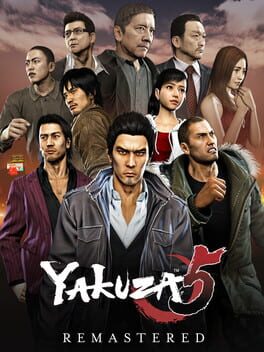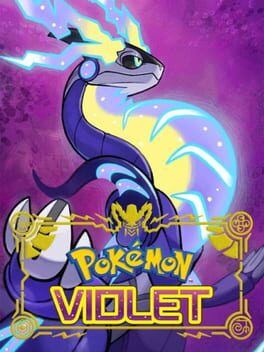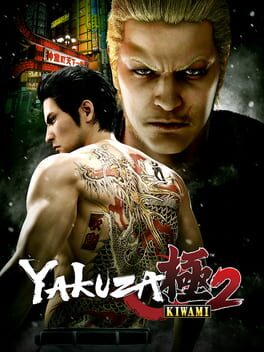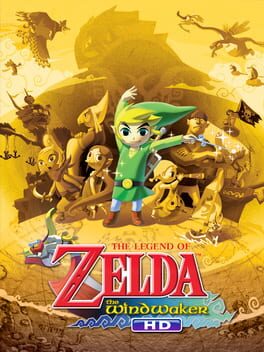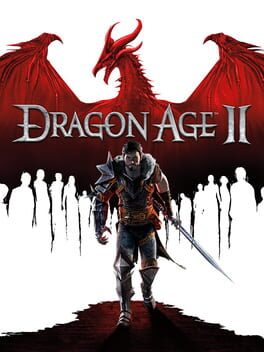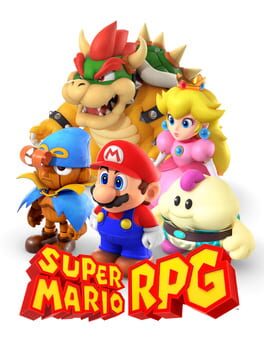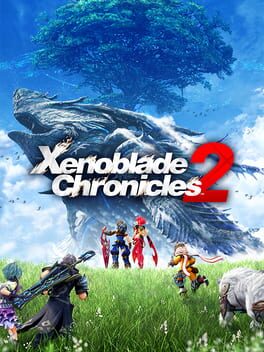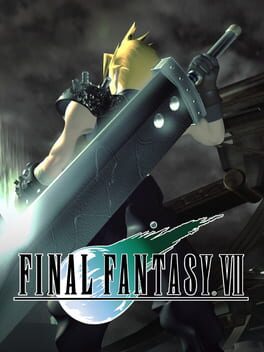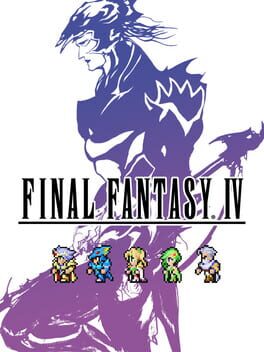Innes
BACKER
2019
This review contains spoilers
Yakuza 5 takes a lot of the issues with the Yakuza 4 formula and radically shakes things up to make one of the best games in the series yet.
+ The Side Stories are, almost without exception, fantastic. Kiryu's taxi driving and racing was by far my favorite but there's great variety across all the characters gameplay-wise. My only criticism is Akiyama not getting one and instead mixed in with Haruka's.
+ Haruka's Idol Simulator(TM) is one of the most bizarre but fun segments I've played in this series. I honestly would play an entire spin-off game of this if it was properly fleshed out.
+ The story handles the multiple protagonists angle much better than 4, particularly in the finale. Rather than ham-fisting all the characters together and having the final boss be a boss rush, 5 takes more time to build up the connection between the protagonists and antagonists.
- It's SO long. This game takes over double the amount of time to beat than the majority of the franchise's games, coming in just a few hours short of Yakuza 0's completion time. The difference here is 0 is a lot better paced.
- Combat gameplay is very similar to 4, to the point where it doesn't really feel like there's an evolution between the two titles at all other than aesthetic changes.
- I really didn't like Shinada. Sorry. Whereas Tanimura felt like a key component of the cast in 4, Shinada felt to me like he could squeezed in at the last second and could have really been replaced by anyone else. I also wasn't huge on his character itself and felt he was a bit of an airhead without many endearing traits.
+ The Side Stories are, almost without exception, fantastic. Kiryu's taxi driving and racing was by far my favorite but there's great variety across all the characters gameplay-wise. My only criticism is Akiyama not getting one and instead mixed in with Haruka's.
+ Haruka's Idol Simulator(TM) is one of the most bizarre but fun segments I've played in this series. I honestly would play an entire spin-off game of this if it was properly fleshed out.
+ The story handles the multiple protagonists angle much better than 4, particularly in the finale. Rather than ham-fisting all the characters together and having the final boss be a boss rush, 5 takes more time to build up the connection between the protagonists and antagonists.
- It's SO long. This game takes over double the amount of time to beat than the majority of the franchise's games, coming in just a few hours short of Yakuza 0's completion time. The difference here is 0 is a lot better paced.
- Combat gameplay is very similar to 4, to the point where it doesn't really feel like there's an evolution between the two titles at all other than aesthetic changes.
- I really didn't like Shinada. Sorry. Whereas Tanimura felt like a key component of the cast in 4, Shinada felt to me like he could squeezed in at the last second and could have really been replaced by anyone else. I also wasn't huge on his character itself and felt he was a bit of an airhead without many endearing traits.
2012
2022
I was pleasantly surprised by Pokémon Violet, in a very similar way to how Sun, Moon, Ultra Sun & Ultra Moon surprised me. The story and characters are surprisingly strong for a Pokémon game, the gameplay changes taken from Legends: Arceus make battles more fluid and fun and the open world feels busy and alive (looking at you Legends: Arceus!). The soundtrack also takes a page from Ultra Sun/Ultra Moon's playbook by introducing a bunch of new genres to the series like the excellent Jazz Gym Leader theme and the EDM Team Star music.
My only gameplay complaint is the game tries to push this narrative that you can tackle the three story paths and explore the world in any way you'd like but without level scaling, you're really set to tackling objectives in a specific order which defeats some of the open world and objectives' purpose. This also makes the pacing of the story a little odd, though no more odd than your average open world RPG.
That aside though, I really enjoyed how Violet shakes up the main series Pokemon formula...which makes it a real shame that the, frankly, horrendous performance issues ruin everything going for it: This is, by FAR, the worst-performing Nintendo Switch title I've ever played.
Constant stutter and slowdown makes exploring and battling in the open world a sluggish and unpleasant experience, NPCs and Pokemon pop in right in front of you and when they do appear in the distance, they appear at a much lower framerate which makes them even more jarringly noticeable. Playing in handheld seems to provide a slightly smoother experience than Docked surprisingly but the issues are very much noticeable through both methods of play.
I also encountered a ton of minor bugs throughout my playthrough, from Pokemon appearing inside buildings and trees to the camera falling through the floor during battles. I even had a wild Pokemon's model just suddenly disappear in the middle of a battle. It's baffling that it remains in this state four months after release and with the DLC coming later this year.
It's a real shame because purely based on the content, this is a HUGE step up from Sword/Shield and is up there with Black/White, HeartGold/SoulSilver and Ultra Sun/Ultra Moon as one of Game Freak's best Pokemon experiences. But judging by the lack of fixes this far on from release, it looks like the game will be forever tarnished by these issues.
My only gameplay complaint is the game tries to push this narrative that you can tackle the three story paths and explore the world in any way you'd like but without level scaling, you're really set to tackling objectives in a specific order which defeats some of the open world and objectives' purpose. This also makes the pacing of the story a little odd, though no more odd than your average open world RPG.
That aside though, I really enjoyed how Violet shakes up the main series Pokemon formula...which makes it a real shame that the, frankly, horrendous performance issues ruin everything going for it: This is, by FAR, the worst-performing Nintendo Switch title I've ever played.
Constant stutter and slowdown makes exploring and battling in the open world a sluggish and unpleasant experience, NPCs and Pokemon pop in right in front of you and when they do appear in the distance, they appear at a much lower framerate which makes them even more jarringly noticeable. Playing in handheld seems to provide a slightly smoother experience than Docked surprisingly but the issues are very much noticeable through both methods of play.
I also encountered a ton of minor bugs throughout my playthrough, from Pokemon appearing inside buildings and trees to the camera falling through the floor during battles. I even had a wild Pokemon's model just suddenly disappear in the middle of a battle. It's baffling that it remains in this state four months after release and with the DLC coming later this year.
It's a real shame because purely based on the content, this is a HUGE step up from Sword/Shield and is up there with Black/White, HeartGold/SoulSilver and Ultra Sun/Ultra Moon as one of Game Freak's best Pokemon experiences. But judging by the lack of fixes this far on from release, it looks like the game will be forever tarnished by these issues.
2017
A huge improvement from Kiwami 1, especially in terms of gameplay, but its story ultimately lets it down - keeping it from reaching the heights of Yakuza 0.
+ I am IN LOVE with the gameplay changes introduced with the Dragon Engine. It definitely isn't for everyone, as the system of 0 and Kiwami felt much more precise and skill-rewarding, but being able to ragdoll enemies into space has been the most fun I've had in a Yakuza game yet - even at the cost of the combat variety seen in 0 and Kiwami.
+ The substories are perhaps the biggest improvement of all. Tons of variety and wacky sidequests that were mostly on par with Yakuza 0.
+ The cabaret club is back! It's almost identical to how it worked in 0 which is a bit of a shame but the story and characters, especially if you've played 0, more than make up for it.
- The first half of the story is a huge improvement versus Kiwami which makes it all the worse that the second half falls off a cliff. Without going into spoilers, I'll just say the ending is mind-boggling and not in a good way.
- Majima Construction: I'm so sad that I hated this game mode and had to quit midway through the third mission. I found the gameplay really stressful and unenjoyable having to constantly micromanage my units. It's a real shame because the concept of fighting Masahiro Chono and Keiji Mutoh in a Yakuza game sounds INCREDIBLE on paper.
+ I am IN LOVE with the gameplay changes introduced with the Dragon Engine. It definitely isn't for everyone, as the system of 0 and Kiwami felt much more precise and skill-rewarding, but being able to ragdoll enemies into space has been the most fun I've had in a Yakuza game yet - even at the cost of the combat variety seen in 0 and Kiwami.
+ The substories are perhaps the biggest improvement of all. Tons of variety and wacky sidequests that were mostly on par with Yakuza 0.
+ The cabaret club is back! It's almost identical to how it worked in 0 which is a bit of a shame but the story and characters, especially if you've played 0, more than make up for it.
- The first half of the story is a huge improvement versus Kiwami which makes it all the worse that the second half falls off a cliff. Without going into spoilers, I'll just say the ending is mind-boggling and not in a good way.
- Majima Construction: I'm so sad that I hated this game mode and had to quit midway through the third mission. I found the gameplay really stressful and unenjoyable having to constantly micromanage my units. It's a real shame because the concept of fighting Masahiro Chono and Keiji Mutoh in a Yakuza game sounds INCREDIBLE on paper.
2015
This review contains spoilers
10/10 WOULD BEAT UP KUZE AGAIN
Didn't know what to expect coming into this, apart from some of the wilder substories I'd seen prior, but what a blast this game was! This somehow manages to balance the super traditional but great main story with the absolute madness of the side content without either feeling off. One minute, I'm doing a dance-off with Michael Jackson or managing my cabaret club and the next, I'm trying to clear my name of murder with an entire Yakuza family out to get me. Somehow, it all just works!
The one big bugbear I had with Yakuza 0 is just how LONG it is, especially if you experience all the side content or even (shudder) go for 100% completion. You're looking at JRPG-length playthrough times if you go for the latter. There were a few points during my nearly 80-hour playthrough where I got a little bogged down with side stuff and burned myself out but even then, I never actively disliked the game at any point.
I also 100% did not shed a tear when Makoto didn't recognize Majima during the epilogue. Nope. Not me. Not one bit.
Didn't know what to expect coming into this, apart from some of the wilder substories I'd seen prior, but what a blast this game was! This somehow manages to balance the super traditional but great main story with the absolute madness of the side content without either feeling off. One minute, I'm doing a dance-off with Michael Jackson or managing my cabaret club and the next, I'm trying to clear my name of murder with an entire Yakuza family out to get me. Somehow, it all just works!
The one big bugbear I had with Yakuza 0 is just how LONG it is, especially if you experience all the side content or even (shudder) go for 100% completion. You're looking at JRPG-length playthrough times if you go for the latter. There were a few points during my nearly 80-hour playthrough where I got a little bogged down with side stuff and burned myself out but even then, I never actively disliked the game at any point.
I also 100% did not shed a tear when Makoto didn't recognize Majima during the epilogue. Nope. Not me. Not one bit.
2023
Final Fantasy XVI is a five-star movie embedded in a three-and-a-half-star video game.
Writing, story, and characters are the strong suit here, unsurprising as it's helmed by Naoki Yoshida and the wider team behind Final Fantasy XIV, where the same elements also shine. XVI being one of the most visually striking games I've ever played also goes a long way in elevating those factors.
It's a shame then, that the gameplay of XVI didn't reach match those high standards for me. The game is certainly fun, no doubt about that, but combat has the long-term depth of a puddle - mainly thanks to Clive's moveset not evolving beyond the first quarter of the story. The regular introduction of new Eikons and abilities helped somewhat with this but the core hack-and-slash gameplay becomes repetitive before long.
The side quest design and pacing are also fairly questionable. Don't get me wrong, some of them are excellent and do a fantastic job of getting across the Bearers' plight. But many, particularly the massive bunch that gets dumped on you all at once before the final main quest, feel like monotonous MMO-esque fetch quests - perhaps a side effect of the dev team coming from long-time MMO development.
Writing, story, and characters are the strong suit here, unsurprising as it's helmed by Naoki Yoshida and the wider team behind Final Fantasy XIV, where the same elements also shine. XVI being one of the most visually striking games I've ever played also goes a long way in elevating those factors.
It's a shame then, that the gameplay of XVI didn't reach match those high standards for me. The game is certainly fun, no doubt about that, but combat has the long-term depth of a puddle - mainly thanks to Clive's moveset not evolving beyond the first quarter of the story. The regular introduction of new Eikons and abilities helped somewhat with this but the core hack-and-slash gameplay becomes repetitive before long.
The side quest design and pacing are also fairly questionable. Don't get me wrong, some of them are excellent and do a fantastic job of getting across the Bearers' plight. But many, particularly the massive bunch that gets dumped on you all at once before the final main quest, feel like monotonous MMO-esque fetch quests - perhaps a side effect of the dev team coming from long-time MMO development.
Massive improvement over Xenoblade 2 but doesn't quite reach the lofty heights of Xenoblade 1.
Positives: The main cast are easily the most well-rounded of the entire series, the overall game direction is far better focused than Xenoblade 2 and the highs of this game far exceed anything from XC1 or 2. The end of Chapter 5 in particular is heart-wrenchingly brilliant and one of the best story moments I've ever experienced in a JRPG.
Negatives: Combat takes a long time to hit its stride, only unlocking to its full potential around halfway through the game. The villains are unfortunately very weak and underdeveloped aside from the secondary antagonist, making for a very noticeable contrast with the excellent protagonist cast. The overall story is good but feels rushed in the last third, even for Xenoblade standards.
Positives: The main cast are easily the most well-rounded of the entire series, the overall game direction is far better focused than Xenoblade 2 and the highs of this game far exceed anything from XC1 or 2. The end of Chapter 5 in particular is heart-wrenchingly brilliant and one of the best story moments I've ever experienced in a JRPG.
Negatives: Combat takes a long time to hit its stride, only unlocking to its full potential around halfway through the game. The villains are unfortunately very weak and underdeveloped aside from the secondary antagonist, making for a very noticeable contrast with the excellent protagonist cast. The overall story is good but feels rushed in the last third, even for Xenoblade standards.
This review contains spoilers
One of the best Like A Dragon/Yakuza gameplay experiences yet that's sadly hampered by some very strange plot decisions.
Combat is improved in almost every way from Yakuza: Like A Dragon, the side content is consistently excellent, and there's a ton of throwbacks to reward series veterans. Looking purely from a gameplay perspective, this is the best Like A Dragon title yet - apart from maybe Yakuza 0.
All of which makes the issues with its plot even more disappointing. The ending is particularly deflating and left me legitimately thinking, "oh, that's it?" For better and for worse, these issues aren't apparent until the latter half of the game, making for an excellent first impression but leaving you feeling like much of the story's intrigue was wasted towards the end.
Combat is improved in almost every way from Yakuza: Like A Dragon, the side content is consistently excellent, and there's a ton of throwbacks to reward series veterans. Looking purely from a gameplay perspective, this is the best Like A Dragon title yet - apart from maybe Yakuza 0.
All of which makes the issues with its plot even more disappointing. The ending is particularly deflating and left me legitimately thinking, "oh, that's it?" For better and for worse, these issues aren't apparent until the latter half of the game, making for an excellent first impression but leaving you feeling like much of the story's intrigue was wasted towards the end.
Okay, let's get Wind Waker's issues out of the way early: There are noticeable pacing issues towards the endgame, it's notoriously easy and the final dungeon & boss are pretty underwhelming. The HD edition does make some steps to resolve these but ultimately, they are still there and noticeable.
However, these are very minor problems when you look at this Nintendo classic as a whole. The combat is simple but incredibly satisfying, its toon-ish comedy is used sparing yet precisely when it needs to be and the charming artstyle is one of the most timeless in all of gaming. Wind Waker is one of those games you HAVE to play just once in your life and I'm so glad I finally did.
However, these are very minor problems when you look at this Nintendo classic as a whole. The combat is simple but incredibly satisfying, its toon-ish comedy is used sparing yet precisely when it needs to be and the charming artstyle is one of the most timeless in all of gaming. Wind Waker is one of those games you HAVE to play just once in your life and I'm so glad I finally did.
This review contains spoilers
Like A Dragon takes the series in a refreshing new direction, though there are definitely some growing pains with the transition.
+ Ichiban is an endearing breath of fresh air versus Kiryu. Whilst I've always enjoyed Kiryu as a character, getting to see and interact with the world of Yakuza/Like A Dragon through a more quirky character was much more fun.
+ The new turn-based system takes heavy inspiration from both Dragon Quest & SMT/Persona and it shows. It does become a little monotonous by the end and can be buggy at times but it's laid a very promising foundation for the series' future.
+ Just like Y5 and Y6, Like A Dragon's substory quality is fantastic and is only enhanced with Ichiban as the protagonist.
- The writing and characters don't feel as strong as previous entries, particularly in comparison to Y5 and Y6. The antagonists are some of the best in the series but the majority of the protagonists are, unfortunately, fairly dull.
- I wasn't a huge fan of the story's pacing. It didn't feel like it was getting anywhere until around Chapter 11 where it suddenly goes at a breakneck pace and plot details get dumped on you left and right - very Xenoblade Chronicles-esque, mainly to its detriment.
+ Ichiban is an endearing breath of fresh air versus Kiryu. Whilst I've always enjoyed Kiryu as a character, getting to see and interact with the world of Yakuza/Like A Dragon through a more quirky character was much more fun.
+ The new turn-based system takes heavy inspiration from both Dragon Quest & SMT/Persona and it shows. It does become a little monotonous by the end and can be buggy at times but it's laid a very promising foundation for the series' future.
+ Just like Y5 and Y6, Like A Dragon's substory quality is fantastic and is only enhanced with Ichiban as the protagonist.
- The writing and characters don't feel as strong as previous entries, particularly in comparison to Y5 and Y6. The antagonists are some of the best in the series but the majority of the protagonists are, unfortunately, fairly dull.
- I wasn't a huge fan of the story's pacing. It didn't feel like it was getting anywhere until around Chapter 11 where it suddenly goes at a breakneck pace and plot details get dumped on you left and right - very Xenoblade Chronicles-esque, mainly to its detriment.
2011
Before anyone murders me for rating this higher than Origins, hear me out. Yes, Dragon Age II has its well-documented issues: It reuses assets all over the place, the setting isn't as diverse, the third act was clearly rushed in development...
HOWEVER, it is a fantastic Bioware Action RPG that holds up really well in 2022 if you can look past those issues. The writing and characters are great, the combat is super satisfying & weighty and I loved seeing the progression of Kirkwall over the 10-year story arc. DLCs were fun too, though I preferred Mark Of The Assassin to Legacy. Super invested in the Dragon Age world and intrigued to see how Inquisition's move to Open World tackles it.
HOWEVER, it is a fantastic Bioware Action RPG that holds up really well in 2022 if you can look past those issues. The writing and characters are great, the combat is super satisfying & weighty and I loved seeing the progression of Kirkwall over the 10-year story arc. DLCs were fun too, though I preferred Mark Of The Assassin to Legacy. Super invested in the Dragon Age world and intrigued to see how Inquisition's move to Open World tackles it.
2023
A great remake of a solid, if somewhat basic, JRPG that's propped up by its hilarious writing and animation.
+ This is genuinely one of the funniest video games I've ever played. The charming writing, combined with its exaggerated slapstick animations, had me legitimately laughing out loud countless times.
+ The art style remains true to the SNES original whilst being both graphically impressive for the Switch and gorgeous in its own right.
+ THAT secret boss. I won't say anything more but definitely worth seeking out, particularly if you're a Final Fantasy fan.
- Even with the quality of life additions, combat feels dated and a little underdeveloped. Offensive abilities become obsolete in the last quarter of the game as your basic attacks are almost always stronger, which leads to combat feeling dull and slightly repetitive.
- Framerate dips occasionally pop up and are fairly noticeable when they do. Bowser's Keep is most egregious for this and, thankfully, the issue almost entirely cropped up in the overworld - only affecting two fights in the entire game.
+ This is genuinely one of the funniest video games I've ever played. The charming writing, combined with its exaggerated slapstick animations, had me legitimately laughing out loud countless times.
+ The art style remains true to the SNES original whilst being both graphically impressive for the Switch and gorgeous in its own right.
+ THAT secret boss. I won't say anything more but definitely worth seeking out, particularly if you're a Final Fantasy fan.
- Even with the quality of life additions, combat feels dated and a little underdeveloped. Offensive abilities become obsolete in the last quarter of the game as your basic attacks are almost always stronger, which leads to combat feeling dull and slightly repetitive.
- Framerate dips occasionally pop up and are fairly noticeable when they do. Bowser's Keep is most egregious for this and, thankfully, the issue almost entirely cropped up in the overworld - only affecting two fights in the entire game.
I really wish I liked this game more but the first third of the game suffers majorly due to the vague and misleading tutorials on top of the convoluted systems which feels, at times, like Monolith Soft were throwing potential systems at the wall to see what stuck for the DLC & XC3.
The game also leans HEAVILY into full-on anime tropes compared to XC1 which is at its worst during the first few hours when one of the party members is outted as having a maid fetish as part of a comedy bit. Might be okay for some, but I felt a bit uncomfortable with the shift.
Once you get past the slog of the first third though, it becomes a really good continuation of the Xenoblade series (although not overall better than the first) but it is a BIG hill to climb over.
+ Combat is arguably BETTER than XC1! The elemental orbs chain attack system is super satisfying and makes you feel incredibly powerful once you master it.
+ The cast outside of the main party feel much stronger and more memorable than XC1. Alrest feels like an alive world with characters constantly developing vs the Bionos & Mechonis where, at times, everyone outside the main cast felt somewhat flat outside their side quests.
- Its vague, misleading and outright bad tutorials make learning the game's systems a very frustrating experience.
- I am not a fan of Rex (sorry!). I felt more of a connection with Nia as a main character honestly.
- Tsundere characters, maid fetish jokes and other heavy anime tropes are front and centre vs the more 'Look for it and you'll find it' attitude of XC1.
The game also leans HEAVILY into full-on anime tropes compared to XC1 which is at its worst during the first few hours when one of the party members is outted as having a maid fetish as part of a comedy bit. Might be okay for some, but I felt a bit uncomfortable with the shift.
Once you get past the slog of the first third though, it becomes a really good continuation of the Xenoblade series (although not overall better than the first) but it is a BIG hill to climb over.
+ Combat is arguably BETTER than XC1! The elemental orbs chain attack system is super satisfying and makes you feel incredibly powerful once you master it.
+ The cast outside of the main party feel much stronger and more memorable than XC1. Alrest feels like an alive world with characters constantly developing vs the Bionos & Mechonis where, at times, everyone outside the main cast felt somewhat flat outside their side quests.
- Its vague, misleading and outright bad tutorials make learning the game's systems a very frustrating experience.
- I am not a fan of Rex (sorry!). I felt more of a connection with Nia as a main character honestly.
- Tsundere characters, maid fetish jokes and other heavy anime tropes are front and centre vs the more 'Look for it and you'll find it' attitude of XC1.
2012
Final Fantasy 7 doesn't quite topple 6 as my favourite traditional FF game but so glad I finally sat down and experienced it. FF7 remains a very fun game nearly 27 years on from release but it's undeniable that it's aged, particularly so in certain aspects.
The characters, story, and OST are all the strongest I've seen in a FF game yet. The cast is well-rounded and filled with engaging characters that I wanted to see more of (except Cait Sith, fuck Cith Sith), blended with a plot that, while somewhat wacky, really feels like Squaresoft wanted to up the ante versus 4 and 6 in particular. The soundtrack has been praised to death and back so I won't focus on it too much but my god, take a bow Uematsu.
Two big factors bring this game down for me, however: 1) The game as a whole is VERY dated. Its early 3D visuals are the most apparent culprit of this, which don't hold up nearly as well as the pixel-art style of the previous games, but its, at times, confusing game direction and outdated writing also suffer from this.
2) The Materia system. While I think it's a really interesting idea that allows for a ton of core combat variety, it comes at the expense of the party themself feeling unique. In FF6 for example, each party member felt they were distinct in their combat role with their unique abilities that were aided by Espers. In 7 meanwhile, all those unique abilities are wrapped up in Materia that can be given to anyone, on top of stat differences being negligible, making the entire party feel somewhat homogenized. Limit Breaks help a little bit with this but they don't crop up nearly often enough to be a significant factor.
The characters, story, and OST are all the strongest I've seen in a FF game yet. The cast is well-rounded and filled with engaging characters that I wanted to see more of (except Cait Sith, fuck Cith Sith), blended with a plot that, while somewhat wacky, really feels like Squaresoft wanted to up the ante versus 4 and 6 in particular. The soundtrack has been praised to death and back so I won't focus on it too much but my god, take a bow Uematsu.
Two big factors bring this game down for me, however: 1) The game as a whole is VERY dated. Its early 3D visuals are the most apparent culprit of this, which don't hold up nearly as well as the pixel-art style of the previous games, but its, at times, confusing game direction and outdated writing also suffer from this.
2) The Materia system. While I think it's a really interesting idea that allows for a ton of core combat variety, it comes at the expense of the party themself feeling unique. In FF6 for example, each party member felt they were distinct in their combat role with their unique abilities that were aided by Espers. In 7 meanwhile, all those unique abilities are wrapped up in Materia that can be given to anyone, on top of stat differences being negligible, making the entire party feel somewhat homogenized. Limit Breaks help a little bit with this but they don't crop up nearly often enough to be a significant factor.
2021
This review contains spoilers
A product of its time, in every way good AND bad. I had fun with FF4 overall but was definitely left frustrated by its game design on more than one occasion. The Pixel Remaster helps smooth over a ton of the original's technical shortcomings but random difficulty spikes, unclear objectives and other gameplay hitches were irritating to deal with at times. It is a 30+ year-old game though, so I can absolutely forgive most of these due to that.
I also wasn't a huge fan of the Active Time Battle system. FF4 was the first game to introduce the system so I fully expect it to be smoothed out when I get to the later FF games but I felt like I was battling it more than the enemies themselves whilst playing through the game.
All that being said, I did enjoy the game overall despite it's issues due to its age. The characters & writing are, BY FAR, the game's biggest strength and left me wanting to see more from FF4's charming cast of characters! I almost felt there was too little time spent on them - especially Edge due to how late in the story he's introduced. The music is also fantastic, as expected of a Final Fantasy game, though I would have liked a little more variety as tracks are often reused several times - especially in dungeons.
I'm hoping that a lot of these issues are simply growing pains for the FF series and get ironed as I get into the later games. FF6 is next on my agenda so fingers crossed!
I also wasn't a huge fan of the Active Time Battle system. FF4 was the first game to introduce the system so I fully expect it to be smoothed out when I get to the later FF games but I felt like I was battling it more than the enemies themselves whilst playing through the game.
All that being said, I did enjoy the game overall despite it's issues due to its age. The characters & writing are, BY FAR, the game's biggest strength and left me wanting to see more from FF4's charming cast of characters! I almost felt there was too little time spent on them - especially Edge due to how late in the story he's introduced. The music is also fantastic, as expected of a Final Fantasy game, though I would have liked a little more variety as tracks are often reused several times - especially in dungeons.
I'm hoping that a lot of these issues are simply growing pains for the FF series and get ironed as I get into the later games. FF6 is next on my agenda so fingers crossed!
